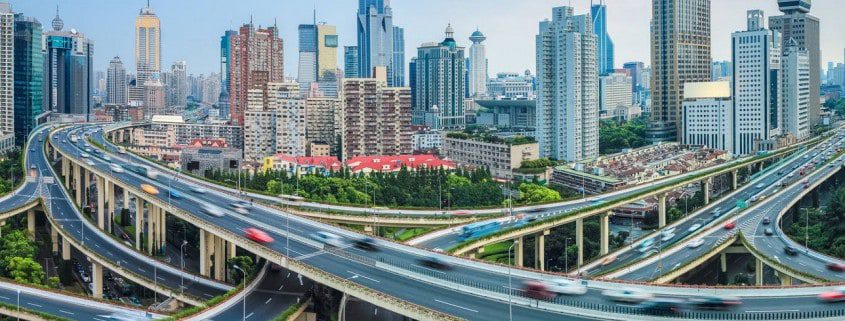Smart City or Surveillance City?
As reported in New Scientist, in Toronto, and many other cities around the globe, ‘smart city’ projects are underway. The concept of infrastructure interlinked by software isn’t new. Having Artificial Intelligence (AI) use data to actively improve our everyday lives seems like a worthwhile endeavour.
This is not just some futuristic concept, as for the past 12 months, the city of Hangzhou in China has collaborated with Alibaba and Foxcom to build the “City Brain” project, where AI started to run the city. For the past year AI has been sucking up every drop of data it could get its virtual hands on. Virtually every resident is tracked; their activity on social networks, their purchases, their movements, their commutes – everything is uploaded to the AI’s databases, where real-time decisions are made.
The stated goal of the project is to improve life in Hangzhou by letting artificial intelligence track traffic, crime, commutes, purchases, interactions, general movements, and much more. Residents were tracked both generally and specifically, with City Brain even plugged into local social media – it also tracks their cell phones.
The project has been considered an enormous success, and Alibaba is now packaging the system to export to other cities in China – and ultimately, the rest of the world. After a year under the new system, rush hour traffic is down 10% as the system uses hundreds of thousands of cameras dotted through out the city, tracking the movement of almost every car on the roads. It can instantly detect accidents, blockages, and can predict traffic flow 10 minutes ahead of time, then adjusts traffic light patterns to even the flow. Illegal parking is tracked in real time and the system will even contact individual commuters to offer detours and weather advisories.
Here is one the police love. If someone breaks the law, they too can be tracked throughout the city before being picked up by the police. The reality is that a fully ‘smart’ city means that pretty much every aspect of your life is tracked – the privacy issues are huge.
Why does it seem to work so well in Hangzhou? As Alibaba’s project leader, Xian-Sheng Hua stated…“In China, people have less concern with privacy, which allows us to move faster.”
“It’s easy to identify when people are not following the ‘normal’ behaviour patterns. Having identified people who are not ‘normal’, they can of course then be tracked – and who they meet with, where they go and so forth can also be quickly identified,” says Paul Bernal at the University of East Anglia, UK. “As a way to control dissident movements or anything the authorities don’t like, it’s perfect.”
According to the Gartner Group, an estimated 2.3 billion connected things will be used in smart cities this year – a 43% increase over 2016. This rise of digital connectivity also exposes a host of vulnerabilities cybercriminals will be lining up to exploit.
In the video game Watch Dogs, you can play a hacker who takes over the central operating system of a futuristic, hyper-connected Chicago. Once you have control over the city’s security system, you can spy on residents using surveillance cameras, intercept phone calls, and cripple the city’s critical infrastructure, bringing the city to its knees.
While Watch Dogs is just a game, it illustrates a scenario that could happen in today’s increasingly smart cities. It was only recently that a major hack took place that targeted Internet infrastructure in the US with one of the largest DDoS attacks ever recorded. The root cause was tracked back to overlooked security vulnerabilities in hundreds of thousands of compromised connected video cameras. Similar Internet of Things (IoT) enabled cameras and sensors are driving forward the Smart City initiative that depends on these devices to manage the entire city’s infrastructure and assets. Essentially, this dependency suggests that even the smallest of security weak points within the Smart City infrastructure can escalate security exploitation to unimaginable and uncontrollable levels.
We are becoming a society that is more and more willing to have our every movement and conversation monitored for the perceived convenience of a ‘safer’ and more efficient city. We are giving up our individual rights and freedoms so that big government can better protect us.
It is a timely thought, as recently we had Remembrance Day in Canada, and Memorial Day in the US. On these days we honoured those who gave their lives to protect our rights and freedoms. The question going forward is, have we become too eager to give up those rights and freedoms that so many have died to preserve, simply to make our lives more convenient? A smart city is in reality, a surveillance city, where citizens’ privacy is the cost of the efficiency gains.
Stay tuned!


